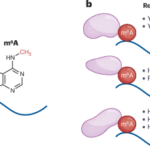A new report by the National Academies of Sciences, Engineering, and Medicine (NASEM) warns that the U.S. risks losing its status as a global leader in research due to a flawed immigration system and lingering effects of past discriminatory policies. The report calls for significant reforms to retain foreign-born STEM talent and enhance the domestic pipeline.
Key Takeaways:
Immigration Reform is Crucial: The U.S. must make it easier for immigrants with advanced STEM degrees to stay in the country, as the current system limits access to critical talent.
China Initiative Critique: The report criticizes the now-defunct China Initiative for targeting scientists of Chinese descent, urging actions to mitigate its chilling effects on the research community.
Policy Recommendations: Proposed changes include increasing green card availability for STEM experts, removing country-specific caps, and providing green cards to all advanced degree holders from U.S. universities.
National Security Concerns: The panel warns that restrictive policies, if seen as discriminatory, could backfire, undermining the U.S.’s ability to attract top international talent.
Investment in Domestic STEM: A massive, long-term investment in domestic STEM education is needed, akin to the post-Sputnik push, to ensure the U.S. remains competitive in the global research arena.
For an in-depth look at how immigration challenges are impacting America’s research future, click here to read the full report by the National Academies of Sciences, Engineering, and Medicine (NASEM).











